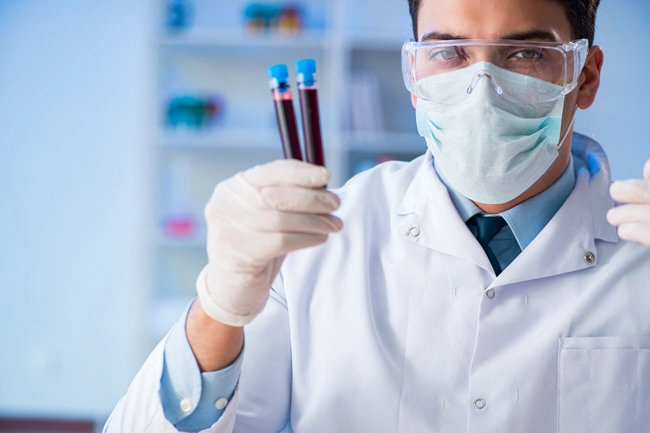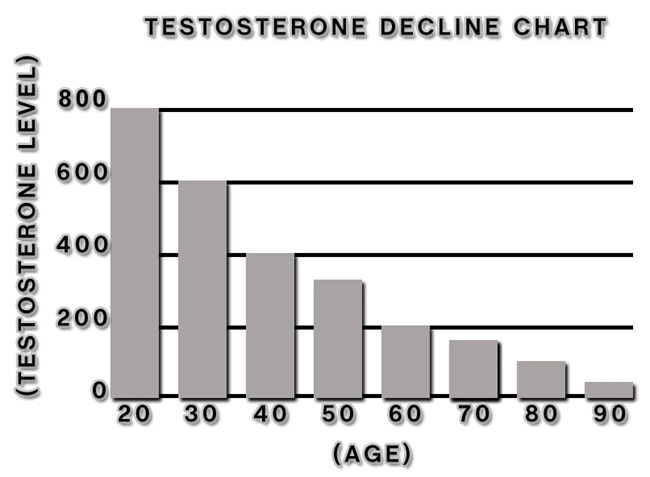
Introduction
Testosterone deficiency syndrome (TDS), also known as hypogonadism, is a condition characterized by abnormally low levels of testosterone in men. This hormonal imbalance can lead to a variety of health issues, including decreased libido, fatigue, and mood disturbances. Recent research has begun to explore the connection between TDS and gallbladder disease, a significant health concern for American males. This article delves into the insights and implications of this relationship, offering valuable information for those affected.
Understanding Testosterone Deficiency Syndrome
Testosterone deficiency syndrome occurs when the body fails to produce adequate levels of testosterone, a crucial hormone responsible for male development and sexual function. Symptoms of TDS can include reduced muscle mass, increased body fat, and diminished energy levels. As men age, the prevalence of TDS increases, with estimates suggesting that up to 40% of men over 45 may experience some degree of testosterone deficiency.
The Prevalence of Gallbladder Disease
Gallbladder disease, encompassing conditions such as gallstones and cholecystitis, affects millions of Americans each year. It is more common in women, but men are not immune to its impact. Gallstones, the most frequent gallbladder issue, can cause severe abdominal pain and may require surgical intervention. The risk factors for gallbladder disease include obesity, rapid weight loss, and certain genetic predispositions.
Exploring the Connection
Emerging research has begun to uncover a potential link between testosterone deficiency and an increased risk of gallbladder disease. Studies have shown that men with lower testosterone levels may be more susceptible to developing gallstones. One theory suggests that testosterone may influence the composition of bile, which, when imbalanced, can lead to the formation of gallstones. Additionally, the metabolic changes associated with TDS, such as increased body fat, may contribute to the development of gallbladder issues.
Implications for American Males
For American males, understanding the relationship between testosterone deficiency and gallbladder disease is crucial. Men experiencing symptoms of TDS should seek medical evaluation, as early detection and treatment can mitigate the risk of associated health complications, including gallbladder disease. Hormone replacement therapy (HRT) is a common treatment for TDS and may help restore testosterone levels to normal, potentially reducing the risk of gallstone formation.
Lifestyle Modifications and Prevention
In addition to medical interventions, lifestyle modifications can play a significant role in managing TDS and reducing the risk of gallbladder disease. Maintaining a healthy weight, engaging in regular physical activity, and adopting a balanced diet can help improve overall metabolic health and hormone balance. For men at risk of gallstones, avoiding rapid weight loss and maintaining a diet low in saturated fats may be beneficial.
Conclusion
The connection between testosterone deficiency syndrome and gallbladder disease highlights the importance of comprehensive health management for American males. By addressing TDS through medical and lifestyle interventions, men can potentially reduce their risk of developing gallbladder issues. As research continues to evolve, it is essential for men to stay informed and proactive about their health, seeking regular medical check-ups and discussing any concerns with their healthcare providers. Understanding and managing testosterone levels can be a critical step in maintaining overall well-being and preventing serious health complications.
Contact Us Today For A Free Consultation
Dear Patient,
Once you have completing the above contact form, for security purposes and confirmation, please confirm your information by calling us.
Please call now: 1-800-380-5339.
Welcoming You To Our Clinic, Professor Tom Henderson.

- Testosterone Deficiency in American Men: Symptoms, Diagnosis, and Holistic Management [Last Updated On: March 15th, 2025] [Originally Added On: March 15th, 2025]
- Managing Testosterone Deficiency in Aging American Men: Symptoms, Diagnosis, and Treatment [Last Updated On: March 18th, 2025] [Originally Added On: March 18th, 2025]
- Alcohol's Impact on Testosterone and Risk of Deficiency Syndrome in American Males [Last Updated On: March 19th, 2025] [Originally Added On: March 19th, 2025]
- Testosterone Deficiency Syndrome: Symptoms, Importance of Regular Check-ups, and Treatment Benefits [Last Updated On: March 19th, 2025] [Originally Added On: March 19th, 2025]
- Testosterone Deficiency in American Men: Symptoms, Diagnosis, and Energy Impact [Last Updated On: March 19th, 2025] [Originally Added On: March 19th, 2025]
- Stress and Testosterone Deficiency: Mechanisms, Evidence, and Management Strategies [Last Updated On: March 19th, 2025] [Originally Added On: March 19th, 2025]
- Testosterone Deficiency Syndrome: Symptoms, Diagnosis, and Hormone Therapy Benefits [Last Updated On: March 20th, 2025] [Originally Added On: March 20th, 2025]
- Testosterone Deficiency Syndrome: Impacts on Muscle Mass and Health in American Men [Last Updated On: March 20th, 2025] [Originally Added On: March 20th, 2025]
- Environmental Toxins and Testosterone Deficiency in American Males: Public Health Implications [Last Updated On: March 21st, 2025] [Originally Added On: March 21st, 2025]
- Testosterone Deficiency Syndrome: Impacts, Management, and Prostate Health Considerations [Last Updated On: March 21st, 2025] [Originally Added On: March 21st, 2025]
- Testosterone Deficiency Syndrome: Impacts on Skin Health and Management Strategies for American Men [Last Updated On: March 21st, 2025] [Originally Added On: March 21st, 2025]
- Smoking's Impact on Testosterone Deficiency in American Males: Risks and Management [Last Updated On: March 22nd, 2025] [Originally Added On: March 22nd, 2025]
- Testosterone Deficiency Syndrome: Impacts and Management of Joint Health in American Males [Last Updated On: March 22nd, 2025] [Originally Added On: March 22nd, 2025]
- Zinc's Vital Role in Treating Testosterone Deficiency Syndrome in American Men [Last Updated On: March 22nd, 2025] [Originally Added On: March 22nd, 2025]
- Testosterone Deficiency and Mood Disorders: Insights and Management for American Men [Last Updated On: March 22nd, 2025] [Originally Added On: March 22nd, 2025]
- High-Fat Diets and Testosterone: Impacts and Dietary Recommendations for American Males [Last Updated On: March 22nd, 2025] [Originally Added On: March 22nd, 2025]
- Testosterone Deficiency in American Men: Impacts on Cognitive Function and Health Strategies [Last Updated On: March 23rd, 2025] [Originally Added On: March 23rd, 2025]
- Diet Soda's Impact on Testosterone Levels in American Men with TDS [Last Updated On: March 23rd, 2025] [Originally Added On: March 23rd, 2025]
- Weight Training Benefits for Men with Testosterone Deficiency Syndrome [Last Updated On: March 23rd, 2025] [Originally Added On: March 23rd, 2025]
- Testosterone Deficiency and Depression: Understanding the Link in American Men [Last Updated On: March 23rd, 2025] [Originally Added On: March 23rd, 2025]
- Testosterone Deficiency Linked to Hearing Loss in American Males: Insights and Management [Last Updated On: March 23rd, 2025] [Originally Added On: March 23rd, 2025]
- Vitamin D's Role in Managing Testosterone Deficiency in American Males [Last Updated On: March 24th, 2025] [Originally Added On: March 24th, 2025]
- Testosterone Deficiency Syndrome: Impact on Libido and Health in American Men [Last Updated On: March 24th, 2025] [Originally Added On: March 24th, 2025]
- Testosterone Deficiency and Sleep Apnea: Interconnected Health Risks in American Males [Last Updated On: March 24th, 2025] [Originally Added On: March 24th, 2025]
- Testosterone Deficiency and Anemia: Understanding the Link and Treatment Options for American Males [Last Updated On: March 24th, 2025] [Originally Added On: March 24th, 2025]
- Testosterone Deficiency Impacts Body Composition in American Males: Health Implications [Last Updated On: March 25th, 2025] [Originally Added On: March 25th, 2025]
- Magnesium's Role in Managing Testosterone Deficiency in American Males [Last Updated On: March 25th, 2025] [Originally Added On: March 25th, 2025]
- Testosterone Deficiency Syndrome: Understanding Its Link to Hair Loss in American Men [Last Updated On: March 25th, 2025] [Originally Added On: March 25th, 2025]
- Chronic Illness and Testosterone Deficiency: Impacts and Management Strategies for American Males [Last Updated On: March 25th, 2025] [Originally Added On: March 25th, 2025]
- Testosterone Deficiency Syndrome: Impacts and Management in American Athletes [Last Updated On: March 26th, 2025] [Originally Added On: March 26th, 2025]
- Testosterone Deficiency in Men: Impacts on Vision and Eye Health [Last Updated On: March 26th, 2025] [Originally Added On: March 26th, 2025]
- Testosterone Deficiency Syndrome: Impacts on Immune Function in American Men [Last Updated On: March 26th, 2025] [Originally Added On: March 26th, 2025]
- Chronic Stress Impact on Testosterone Levels and TDS in American Males [Last Updated On: March 26th, 2025] [Originally Added On: March 26th, 2025]
- Pesticide Exposure Linked to Testosterone Deficiency in American Men: A Public Health Concern [Last Updated On: March 26th, 2025] [Originally Added On: March 26th, 2025]
- Shift Work's Impact on Testosterone Levels and TDS Risk in American Males [Last Updated On: March 26th, 2025] [Originally Added On: March 26th, 2025]
- Boron's Role in Managing Testosterone Deficiency in U.S. Males: A Promising Adjunct [Last Updated On: March 26th, 2025] [Originally Added On: March 26th, 2025]
- Testosterone Deficiency Linked to Kidney Health Risks in American Men [Last Updated On: March 26th, 2025] [Originally Added On: March 26th, 2025]
- Testosterone Deficiency in American Males: Impacts on Memory and Cognitive Health [Last Updated On: March 26th, 2025] [Originally Added On: March 26th, 2025]
- Testosterone Deficiency in American Males: Impacts on Dental Health and Management Strategies [Last Updated On: March 27th, 2025] [Originally Added On: March 27th, 2025]
- Soy Consumption and Testosterone Levels in American Men with TDS: A Comprehensive Analysis [Last Updated On: March 27th, 2025] [Originally Added On: March 27th, 2025]
- Blue Light Exposure and Testosterone Levels: Managing TDS in American Men [Last Updated On: March 27th, 2025] [Originally Added On: March 27th, 2025]
- Plasticizers' Impact on Testosterone Levels and TDS in American Men: An Emerging Concern [Last Updated On: March 28th, 2025] [Originally Added On: March 28th, 2025]
- Heavy Metal Exposure and Its Impact on Testosterone Levels in American Men [Last Updated On: March 28th, 2025] [Originally Added On: March 28th, 2025]
- Testosterone Deficiency Syndrome: Impacts on Liver Health and Management Strategies [Last Updated On: March 28th, 2025] [Originally Added On: March 28th, 2025]
- Omega-3 Fatty Acids: A Promising Approach to Managing Testosterone Deficiency in Men [Last Updated On: March 28th, 2025] [Originally Added On: March 28th, 2025]
- Air Pollution's Impact on Testosterone Deficiency in American Males: A Public Health Concern [Last Updated On: March 28th, 2025] [Originally Added On: March 28th, 2025]
- EMFs and Testosterone: Understanding Impacts and Mitigation Strategies for Male Health [Last Updated On: March 28th, 2025] [Originally Added On: March 28th, 2025]
- Testosterone Deficiency and Thyroid Function: Interplay and Management in American Males [Last Updated On: March 30th, 2025] [Originally Added On: March 30th, 2025]
- Fenugreek: A Natural Remedy for Testosterone Deficiency Syndrome in American Males [Last Updated On: March 30th, 2025] [Originally Added On: March 30th, 2025]
- Testosterone Deficiency Linked to Pancreatic Health: Implications for American Men [Last Updated On: March 31st, 2025] [Originally Added On: March 31st, 2025]
- Testosterone Deficiency Syndrome: Impact, Diagnosis, and Management in American Men [Last Updated On: April 1st, 2025] [Originally Added On: April 1st, 2025]
- Testosterone Deficiency Syndrome: Impact of Adrenal Health and Holistic Treatment Approaches [Last Updated On: April 2nd, 2025] [Originally Added On: April 2nd, 2025]
- Noise Pollution's Impact on Testosterone Levels and TDS in American Males [Last Updated On: April 5th, 2025] [Originally Added On: April 5th, 2025]
- Tribulus Terrestris: A Natural Approach to Managing Testosterone Deficiency in American Men [Last Updated On: April 5th, 2025] [Originally Added On: April 5th, 2025]
- Testosterone Deficiency and Parathyroid Health: Impacts and Management Strategies [Last Updated On: April 7th, 2025] [Originally Added On: April 7th, 2025]
- Testosterone Deficiency Syndrome: Hypothalamic Role and Management in American Men [Last Updated On: April 7th, 2025] [Originally Added On: April 7th, 2025]
- Fluoride Exposure and Testosterone Levels: Implications for TDS in American Men [Last Updated On: April 7th, 2025] [Originally Added On: April 7th, 2025]
- Pineal Gland's Role in Testosterone Deficiency Syndrome Among American Males [Last Updated On: April 8th, 2025] [Originally Added On: April 8th, 2025]
- DHEA Supplementation: A Promising Treatment for Testosterone Deficiency Syndrome in Men [Last Updated On: April 9th, 2025] [Originally Added On: April 9th, 2025]
- Ginseng's Potential Role in Managing Testosterone Deficiency in U.S. Males [Last Updated On: April 9th, 2025] [Originally Added On: April 9th, 2025]
- BPA Exposure Linked to Lower Testosterone Levels in American Men: TDS Implications [Last Updated On: April 10th, 2025] [Originally Added On: April 10th, 2025]
- Testosterone Deficiency Syndrome: Impacts on Respiratory Health in American Males [Last Updated On: April 10th, 2025] [Originally Added On: April 10th, 2025]
- Phthalates' Role in Testosterone Deficiency Syndrome Among American Males [Last Updated On: April 11th, 2025] [Originally Added On: April 11th, 2025]
- PFC Exposure Linked to Testosterone Deficiency in American Males: Emerging Evidence [Last Updated On: April 12th, 2025] [Originally Added On: April 12th, 2025]
- Testosterone Deficiency Syndrome: Impacts on Gastrointestinal Health and Management Strategies [Last Updated On: April 13th, 2025] [Originally Added On: April 13th, 2025]
- Testosterone Deficiency in American Men: Impacts and Management of Urinary Health [Last Updated On: April 13th, 2025] [Originally Added On: April 13th, 2025]
- Testosterone Deficiency in American Males: Impact of Endocrine Disruptors and Mitigation Strategies [Last Updated On: April 15th, 2025] [Originally Added On: April 15th, 2025]
- Testosterone Deficiency Syndrome: Impacts and Management for American Males [Last Updated On: April 16th, 2025] [Originally Added On: April 16th, 2025]
- Testosterone Deficiency and Autoimmune Disorders: Impact and Management in American Males [Last Updated On: April 16th, 2025] [Originally Added On: April 16th, 2025]
- Cordyceps: A Natural Ally in Managing Testosterone Deficiency Syndrome [Last Updated On: April 17th, 2025] [Originally Added On: April 17th, 2025]
- Testosterone Deficiency in American Men: Impacts on Metabolic Health and Management Strategies [Last Updated On: April 17th, 2025] [Originally Added On: April 17th, 2025]
- Shilajit's Potential in Managing Testosterone Deficiency in American Men [Last Updated On: April 17th, 2025] [Originally Added On: April 17th, 2025]
- Testosterone Deficiency in American Males: Impacts on Neurological Health and Management Strategies [Last Updated On: April 18th, 2025] [Originally Added On: April 18th, 2025]
- Triclosan Exposure and Testosterone Levels in American Men with TDS [Last Updated On: April 19th, 2025] [Originally Added On: April 19th, 2025]
- Parabens' Impact on Testosterone Levels in American Males: Implications for TDS [Last Updated On: April 20th, 2025] [Originally Added On: April 20th, 2025]
- Phytoestrogens' Impact on Testosterone Levels in American Men with TDS [Last Updated On: April 20th, 2025] [Originally Added On: April 20th, 2025]








